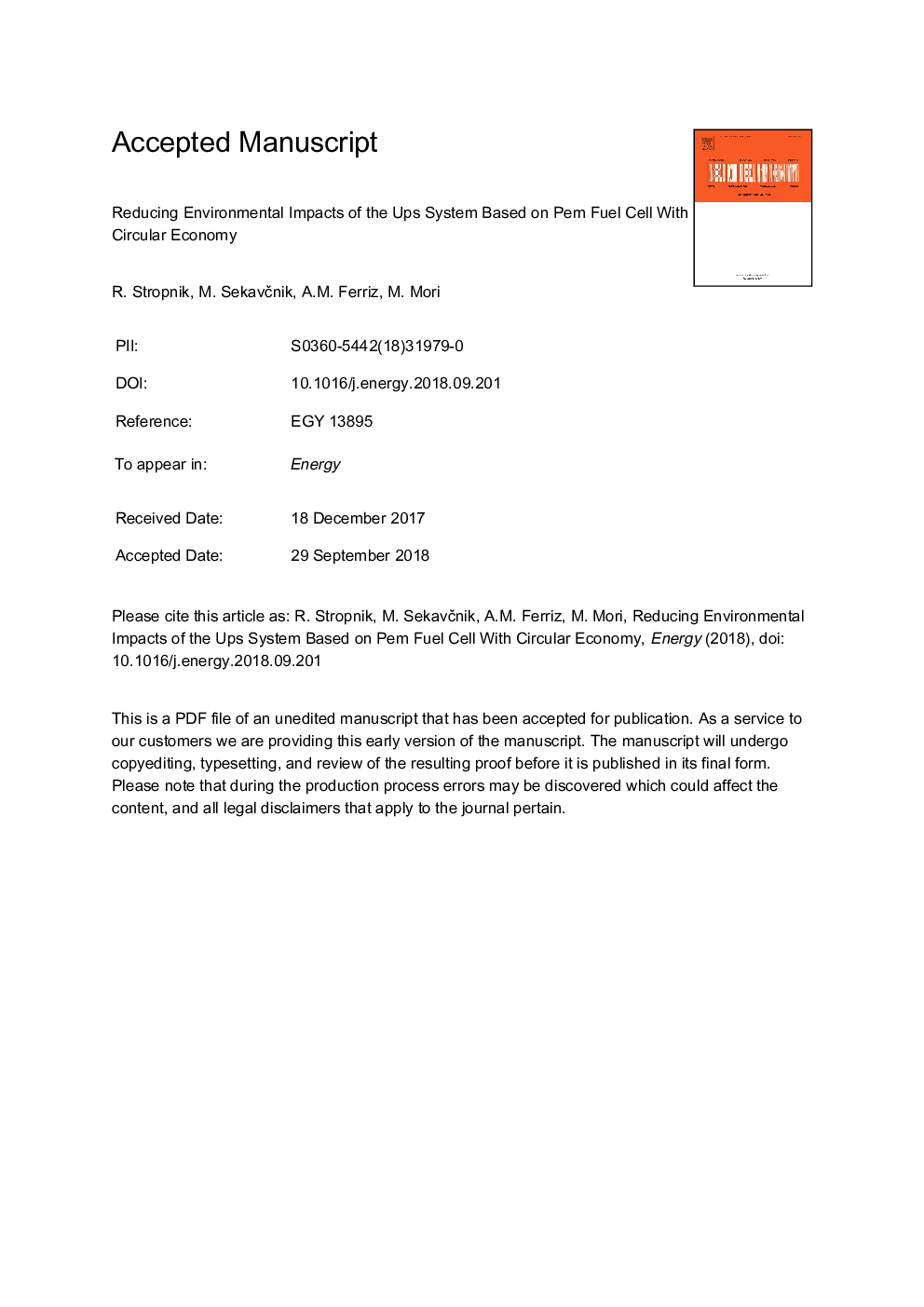| Article ID | Journal | Published Year | Pages | File Type |
|---|---|---|---|---|
| 11015703 | Energy | 2018 | 23 Pages |
Abstract
In this paper an environmental impacts of a 3â¯kW uninterruptible power supply system with polymer membrane fuel cell (FCH-UPS) was evaluated with a life cycle assessment (LCA) method. The analysis was focused on the analysis of the end of life (EOL) scenarios that will help to reduce environmental impacts during manufacturing stage. Numerical model of the FCH-UPS was developed using Gabi software. The scope of analysis was cradle-to-grave with functional unit 1â¯kWh of produced electric energy. In operating phase two geographical locations are compared where hydrogen is produced with electrolysis on-site. Three EOL scenarios were analysed: base, feasible and realistic scenario. With realistic EOL scenario in average a 72% reduction of all environmental impacts in the manufacturing phase was achieved. EOL phase of 3â¯kW FCH-UPS represents low environmental impact compared with other phases in the entire life cycle of observed system. CO2 emissions of 3â¯kW FCH-UPS system was 239â¯g CO2 per 1â¯kWh of produced electricity if operating in Norway and 4040â¯g CO2 per 1â¯kWh in Morocco due to electricity grid mix. Results show that with circular economy, recycling and reuse of the materials in EOL phase, an average reduction of 66% in all environmental impact indicators could be achieved in entire life cycle of a 3â¯kW FCH-UPS system operated in Norway.
Related Topics
Physical Sciences and Engineering
Energy
Energy (General)
Authors
R. Stropnik, M. SekavÄnik, A.M. Ferriz, M. Mori,
